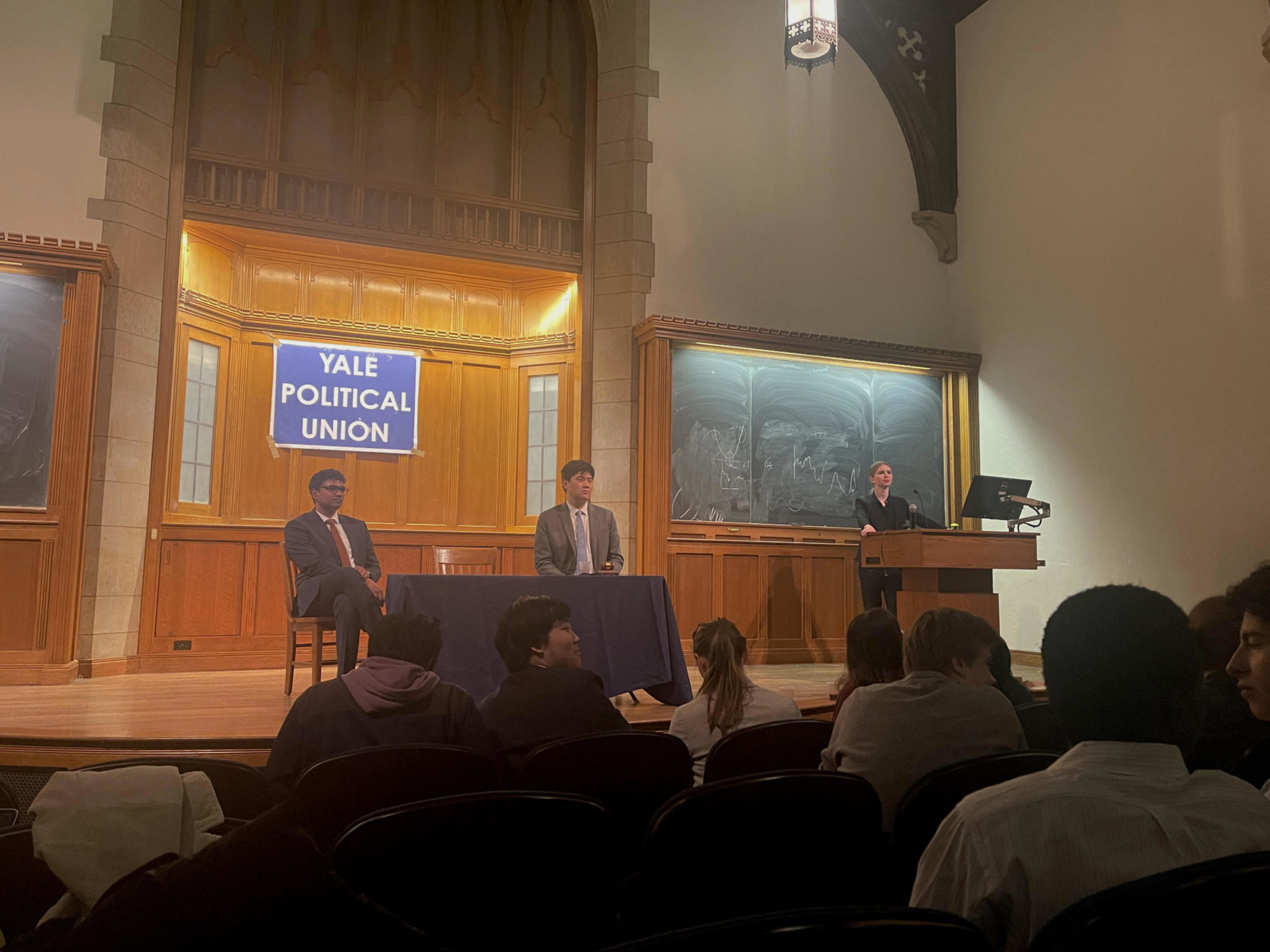Activist and whistleblower Chelsea Manning talks privacy at YPU event
Manning gave the first speech at a debate hosted by the Yale Political Union on regulating consumer surveillance.

Will Porayouw, Contributing Photographer
In 2013, Former United States Army intelligence analyst Chelsea Manning was convicted for violations of the Espionage Act in 2013 after disclosing over 750,000 classified or sensitive military and diplomatic documents to the media organization WikiLeaks. The incident sparked years of national debate over privacy and data collection — a conversation she continued at a Dec. 6 event on campus.
Manning — who was pardoned by former President Barack Obama in 2017 — spoke to the Yale Political Union in William L. Harkness Hall about her views on the regulation of information collection by private companies like Facebook and TikTok. Her talk set up a YPU debate on regulating consumer surveillance.
“I think that the private sector has a lot more leeway with information collection,” Manning told the News. “And there’s a lot less transparency, in terms of where this information goes [and] what they do with it.”
Manning explained that currently, most people “don’t even know” what kind of information is being collected about them. Individuals are so detached from the non-advertising implications of data mining, she said, that it has reached a worrying state.
The real truth, according to her, is that private companies are able to make intuitive observations about you — not just about simple preferences, but about more detailed traits such as your sexual orientation or gender identity, political affiliation and whether you’re susceptible to misinformation.
“I also focus on this because I feel like we’re no longer in a transparency versus secrecy kind of world,” Manning said. “Everything’s out there now.”
She noted that she has more access to information on the war in Ukraine as a “civilian at a laptop computer with internet access” than she did as a soldier in 2010.
According to Manning, the increasing size of the information economy has exacerbated the necessity for new privacy safeguards.
Manning suggested that to change the status quo, privacy should be taken into account at the infrastructure level, meaning that it would be “technically impossible” for a social media platform to collect large amounts of information because of the way the Internet works. Part of a project she is working on with a security firm includes changing the way encryption works and how data is transferred.
Arya Nalluri ’24, who serves as the vice president of the Yale Political Union and an organizer of the event, told the News that it was “amazing” that the organization was able to secure a talk by Manning, though it came together at the last minute.
“Chelsea was a really, really interesting figure,” Nalluri said. “We always try to invite people to the Political Union to have specific or unique perspectives. And I think that Chelsea Manning is a big name when it comes to data surveillance. We thought that her perspectives would be really well heard.”
Nalluri said that the resolution — “Regulate Consumer Surveillance” — that Chelsea spoke in favor of “overwhelmingly” passed a Union vote, as it was “not really a contentious issue.”
“We got her at such short notice and she’s one of our biggest name guests of the semester,” Emma Knight ’23 said. “It’s really good to have an expert here to explain new topics to us and open up a conversation.”
Knight added that she thought Manning gave a “sophisticated” talk about how military behavior surrounding privacy has been carried over into the corporate sphere.
Vivian Vasquez ’23 told the News that she “appreciated” Manning’s emphasis on data regulation, especially in terms of the Fourth Amendment and the lack of regulation policy by the government.
Sukesh Ram ’23 agreed with Vasquez and thought that the talk was “super interesting.” Both Ram and Vasquez said they would have preferred to hear more from Manning, but her time slot was constrained to approximately 30 minutes.
Manning told the News that she had been invited to speak at several universities, highlighting that younger generations would “ultimately” govern for the rest of the century, thereby leaving them the judges determining privacy’s future.
She added that she had made a difference as a young person and encouraged other youth to do the same.
“When I was younger, I did not know that I would be presented with world altering decisions,” Manning said. “I didn’t know that. And nothing really prepares you for that.”
Manning was on active duty as a United States Army soldier from 2007 to 2010 and imprisoned by the federal government from 2010 to 2017.







